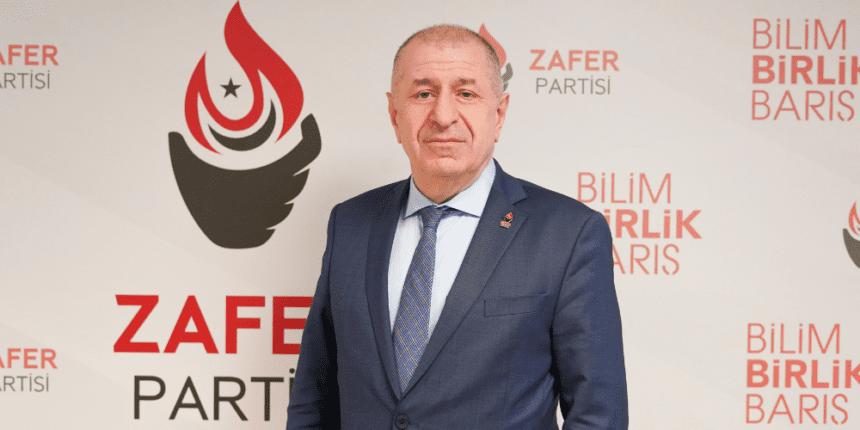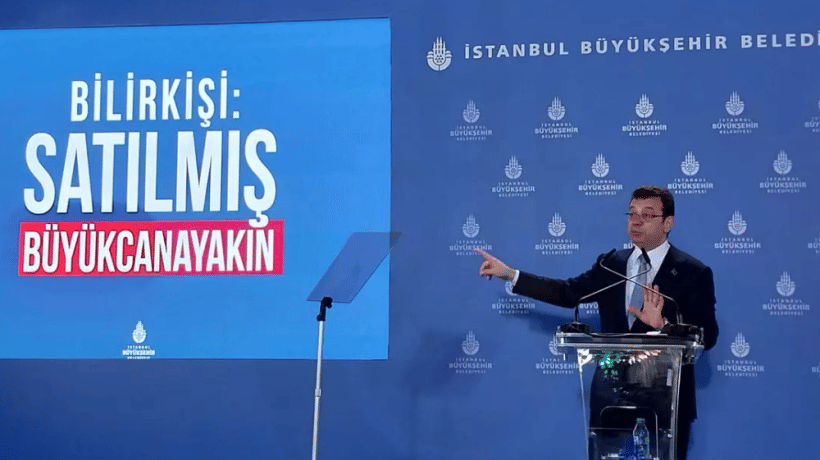Istanbul prosecutors are seeking a prison sentence of up to five years and a political ban for Ümit Özdağ, leader of the far-right Victory Party (ZP), following his arrest last month on charges of insulting President Recep Tayyip Erdoğan.
Özdağ was taken into custody on January 21, facing accusations of “inciting hatred and enmity among the public” due to his social media activity and public remarks. While he has yet to be indicted in that case, a separate indictment has been filed over statements he made about Erdoğan in a recent party meeting.
During a gathering of the Victory Party’s provincial chairpersons on January 19, Özdağ compared Erdoğan’s government to the Crusades, claiming that the ruling Justice and Development Party (AKP) had inflicted greater harm on the Turkish nation than the historical Christian military campaigns.
“No crusade in history has damaged the Turkish nation and state as much as Erdoğan and the AKP,” he said, accusing the president of undermining national identity and filling government institutions with foreign operatives and sectarian groups.
In response, prosecutors launched an investigation, initially charging Özdağ with insulting the president—a criminal offense in Turkey that carries a prison sentence of up to four years. Although he was later released from custody on that charge, he remains jailed on separate allegations of inciting hatred.
.According to the indictment, Özdağ’s statements “damage the honor, dignity, and prestige of the president.” Prosecutors assert there is sufficient evidence to charge him with “publicly insulting the president.” He faces a potential prison sentence of up to four years, along with a political ban.
A vocal nationalist and anti-refugee politician, Özdağ has been a contentious figure in Turkish politics. His party, founded in 2021, has built its platform on anti-migrant sentiment, advocating for the deportation of millions of refugees.
His arrest has drawn criticism from across the political spectrum, with many viewing the case as politically motivated. In recent years, Turkish authorities have increasingly prosecuted individuals for criticizing Erdoğan or his government. Thousands are currently under investigation, with many facing prison time for alleged insults against the president or the AKP.
Insulting the president carries a prison sentence of up to four years, which can be increased if the offense is committed through mass media. Criticizing the government can lead to a prison sentence of up to two years. Many of these cases stem from social media posts shared by Erdoğan’s opponents.
Article 299 of the Turkish Penal Code criminalizes insulting the president, with potential prison terms ranging from one to four years. Prosecutions under this article have risen dramatically, from 132 cases in 2014 to over 6,000 in 2017. The European Court of Human Rights has criticized this law, stating it affords the head of state a privileged status over conveying information and opinion, and has called for its amendment to ensure freedom of expression.
Özdağ’s legal troubles are part of a broader pattern of actions against opposition figures in Turkey. Recently, Turkish authorities have intensified actions against opposition figures, including detentions and judicial investigations. For instance, Ekrem İmamoğlu, the mayor of Istanbul and a potential presidential challenger, faces legal challenges that could result in a political ban.
These developments have raised concerns about the state of democracy and freedom of expression in Turkey, with critics accusing the government of using the judiciary to suppress dissent and silence opposition voices.



